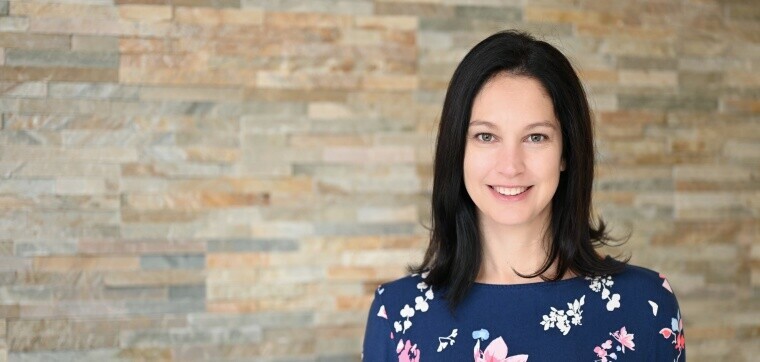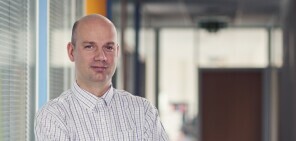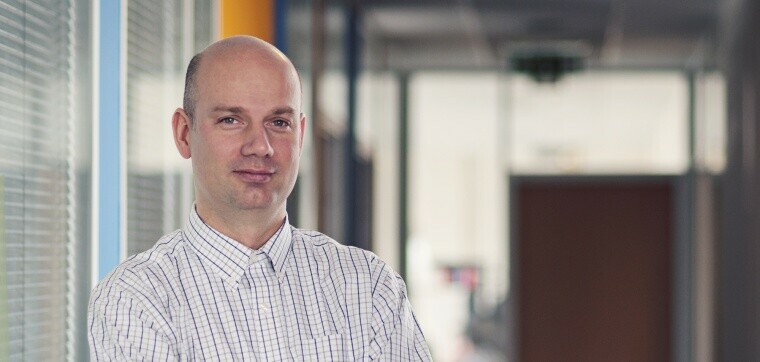Since October 2022 Softline has been operating under the brand name Noventiq.
Zoltán Mészáros, our general manager, spoke earlier about the exciting moments of the formation of Softline in the region. This time, Katalin Jenet, the second member to join the team, will take stock of the company's special qualities and milestones. Katalin is the Marketing Leader for Central and Eastern Europe at Softline Group, and she also talks about how she connected with the IT profession and how she sees the success of the regional team.
As a marketing leader, what areas are you responsible for at Softline?
My primary task is to strengthen the Softline brand and to support the communication of our service and solution portfolio in Central and Eastern Europe. This includes arranging sponsorship for events, organizing webinars, and filling our social media channels and websites with content. In addition, I am responsible for tasks that are less spectacular on the outside, but directly support sales, such as preparing materials needed to carry out the day-to-day work of colleagues, such as information emails and presentations. In addition, I support the company's annual regional strategic planning, which includes defining its growth and development directions.
Not only is my job varied, but my responsibilities are also constantly adapting to the development of the organization. When we started the six companies with the regional managing director, we divided almost every task that arose between the two of us, so I was responsible for countless other areas in addition to traditional marketing. My current role is already much clearer and allows me to use a wider range of marketing tools while continuously supporting corporate goals.
After one of the largest sporting goods manufacturers, you made your way to IT. What motivated you to switch?
Over the course of my career, I’ve toured several industries, including the FMCG sector, a publisher, and a sporting goods manufacturer. I think the fact that I’ve tested myself in different industries has enriched me with a very broad knowledge. In addition to marketing, I had the opportunity to learn about business models and the operation of companies, which fundamentally shaped my professional approach. I had a shortlist of industries I’d like to work in, including IT. It might not have been such a popular field at the time, but it was clear that it was undergoing a major transformation that wouldn’t stop later. It was exciting to join the industry at this stage.
What challenges has the IT sector posed to you?
Honestly, the transition was very exhausting at the beginning. I vividly remember sitting in a traffic jam after the first week of work and feeling like I couldn’t digest any more information. Although I was familiar with certain IT solutions at the user level, the portfolio of services provided by my workplace, Microsoft, was much wider than that. In addition to learning about products and technical terms, I was greatly influenced by all the collaboration I experienced at the company. Each project required the involvement of countless areas, so I was able to work with loads of colleagues and partners on a daily basis, which added a lot of variety to my already new job in many ways.
Later, when I joined Softline, I didn’t feel such a sharp shift, professionally, that time. There were several reasons for this. On the one hand, Microsoft typically sells to customers through partners, so I essentially only switched sides; it could be said that the team remained the same. On the other hand, a significant portion of Softline’s solution and services portfolio is built on Microsoft services, so my prior knowledge provided a solid foundation for this.
In what ways did Softline offer new things?
Knowledge of the market and products was largely a given; however, the two companies differed greatly. In my experience, in a multinational company, colleagues typically work in a specific, well-defined role and area of responsibility, which at the same time may also inhibit creativity. Softline, despite being present in 50 countries, leaves plenty of room for local decisions and solutions. I could also say that, in some ways, we’re like a startup with a solid and international background. Of course, there are specific guidelines that had to be followed right from the start, and it would be a mistake not to exploit the existing knowledge and competence but, in parallel, we’re given a great deal of freedom in making local decisions. It means both independence and responsibility, which is extremely motivating for me.
How did the beginnings define the current success?
Initially, the general manager and I performed all the tasks that arose, of course with the support of the regional headquarters in HR and business development matters. Thanks to this period, problem-solving and teamwork are now an integral part of our corporate culture. In addition to professional knowledge, a solution-oriented attitude is important to us, which in many cases goes beyond one’s defined area of responsibility; even so, it’s natural for all my colleagues. I think it has shaped us into an exceptionally strong community that is still perceptible every day and is one of the pillars of the company’s regional success.
What are you most proud of lately?
My greatest joy is that my colleagues see marketing as a partner. They recognize the role of marketing in achieving common and individual goals. We’ve managed to build a collaboration so that they will reach out to me when they need support to move forward in a project. This can mean that while preparing for a customer meeting, we organize our service portfolio to make it more transparent, or brainstorm together about the materials and information that can make the presentation to a partner even more effective.
In my interpretation, marketing is about actively helping a company achieve results, and not an end in itself. That’s why we work closely with colleagues; everyone recognizes each other’s work, and we achieve success together as well. As a result, I feel a stronger bond between colleagues within the company. I have the opportunity to work together with all my colleagues, and this greatly strengthens my professional relationships.
How has the operation of the company changed since its inception?
Regional growth requires more regulated processes, but it also enables us to better understand our internal resources. We work more with the international headquarters, and we’re able to leverage our international experience and competencies in many ways. We rely, for example, on Softline’s Global Delivery Center, who effectively implement remote projects, and we support their smooth implementation by liaising with local customers. On top of that, we have a number of solutions that we’ve developed for customers in other countries, but we can take them further in the region, tailored to the needs of local clients. All of these reflect the operating model of an international company, but at the same time we still have flexibility, thanks to which we can take advantage of the opportunities and cooperation agreements that arise in the given country. Overall, we operate as a fast and dynamic company, maintaining our agile approach.
What motivates you in everyday life?
The cohesiveness of the professional team takes me forward. I know if I didn’t do a particular task, I would be holding back the work of others, and that can always strengthen my motivation. I draw strength from my colleagues, I know I’m a member of the team, and I need to get the most out of myself even when I’m not in exactly good shape.
What does relaxation mean to you?
On weekdays, I try to regain my momentum with sports; a short run gives me the necessary relaxation. Anyway, I really like active recreation, I often go hiking or cycling with my friends and family. My dad is a keen cyclist; when I visit home, I often join him. I make the most of my spare time and being with my loved ones by turning off work notifications because they can easily take you out of undisturbed relaxation.









